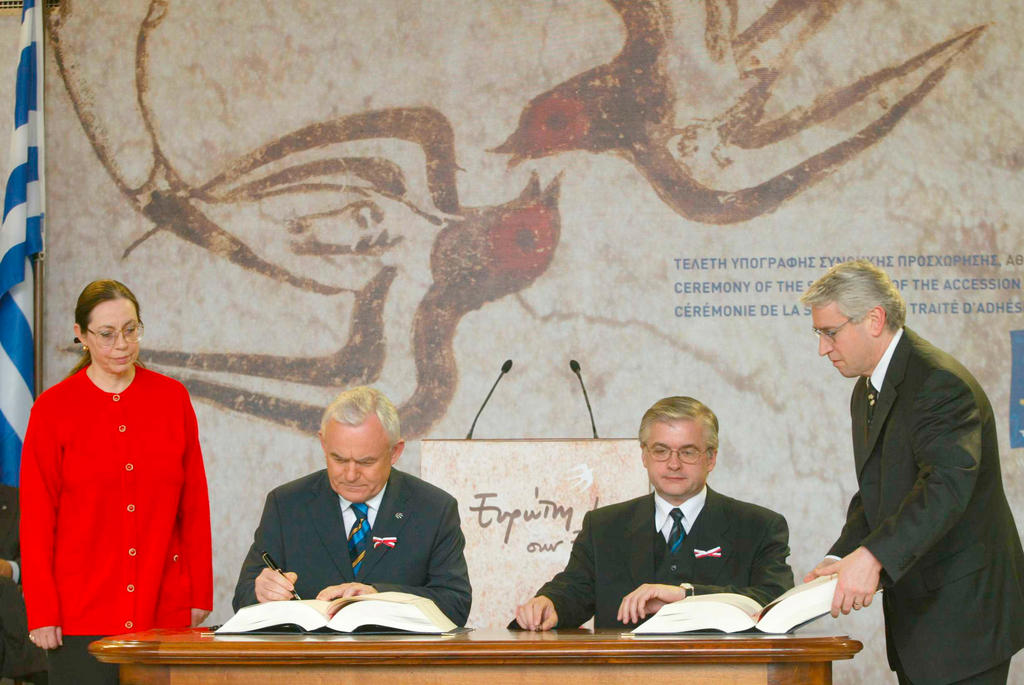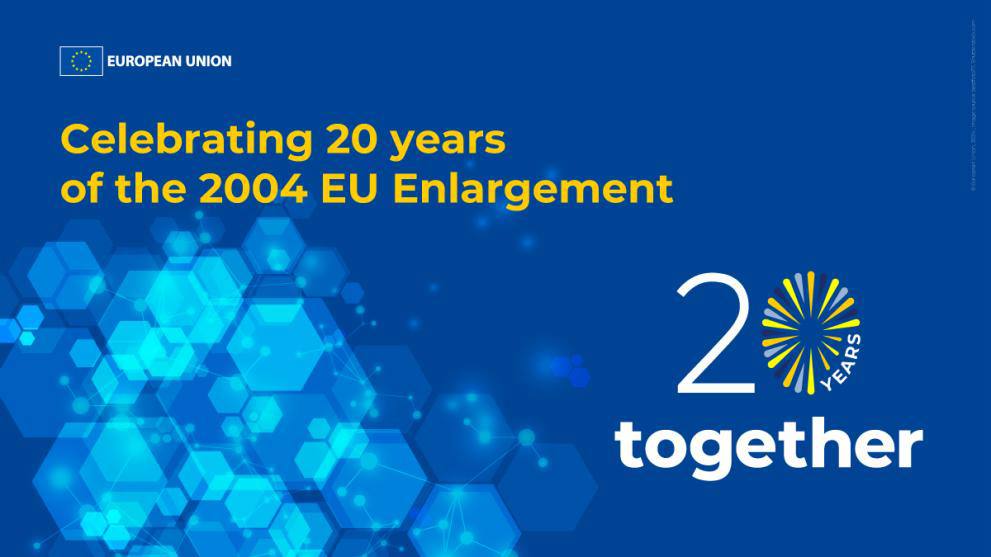Two decades have passed. Poland is on the brink of celebrating the 20th anniversary of its accession to the European Union in the vibrant Parc Cinquantenaire of Brussels. The festivities promise a lively May Day atmosphere, complete with games for children and a captivating country image campaign showcasing Poland’s diverse regions and municipalities to a cosmopolitan audience. One question lingers as Poland prepares to mark this momentous occasion: do they genuinely have cause for celebration?
Author: Szilárd Szélpál
A retrospective glance over the past two decades reveals a remarkable transformation. From its humble beginnings, Poland has emerged as one of the leading economies in Central and Eastern Europe, overcoming economic challenges and surmounting obstacles in its energy sector and energy mix. The journey has been arduous, punctuated by political and economic upheavals and unforeseen events. Yet, through unwavering perseverance and determination, Poland has forged ahead, steadfast in its pursuit of progress and prosperity.

What were Poland’s aspirations upon entering the European Union? Undoubtedly, one of the foremost objectives was to replicate and embed the achievements of the Western welfare society for its population. Recalling the tumultuous 1990s, following the dissolution of the Soviet Union, Polish retailers seized the opportunity to expand their market presence into former socialist countries. The Hungarian forint or the Czech koruna emerged as viable sources of income for Polish retailers, surpassing their own national currency’s limitations. At the heart of Poland’s integration into the EU lay an unwavering commitment to economic convergence with the West and alignment with Western political and military alliance systems. This goal was unequivocal, with little room for dissent from any political faction or societal segment. Despite joining the EU alongside nations boasting more advanced and competitive economies, Poland’s accession was swift and resolute. Some may argue that the West coveted Poland’s potential market of 40 million people, viewing it as a lucrative investment area. The Polish political leadership, too, recognized the allure of aligning with Western principles: capitalist ideals, a free-market ethos, and a commitment to competition, state advocacy, and regime stability.
Fruitful Western-Polish Collaboration
The collaborative efforts between Western nations and Poland yielded rapid and remarkable results following accession to the European Union. Western investment surged, propelling Poland from one of the poorest and most underdeveloped economies to the EU’s fastest-growing economy by 2012. This meteoric rise was particularly noteworthy given the backdrop of the global economic upheaval of the 2008 credit crunch. Poland’s economic ascent can be attributed to a confluence of factors. Firstly, the government actively promoted foreign working capital investment, fostering close economic cooperation with Germany, Europe’s largest economy. This strategic partnership facilitated the exchange of expertise, resources, and technological advancements, propelling Poland’s industrial and commercial sectors to new heights of productivity and competitiveness. Furthermore, Poland’s resilience during the global credit crunch can be attributed in part to the prudent financial practices of its population. With comparatively low levels of indebtedness among its citizens, Poland could weather the storm relatively quickly, providing a stable foundation for economic recovery and growth. Crucially, Poland’s leadership demonstrated agility and foresight in navigating the challenges of the crisis. By implementing targeted public investment initiatives, the government stimulated economic activity and employment, mitigating the adverse effects of the downturn. This proactive approach safeguarded Poland’s economy and positioned it as a beacon of resilience and stability amidst global uncertainty. As a result of these concerted efforts, Poland transformed from a struggling state into a leading regional middle power. Its economic prowess and dynamism have propelled its development and contributed to the broader prosperity and stability of the Central and Eastern European region.
The significant economic growth experienced by Poland during this period has translated into tangible political influence, both within the European Union and on the global stage. Notably, Poland stands out as the sole former socialist EU Member State to have delegated a national politician to the EU’s highest political leadership. Donald Tusk’s tenure as Council President, following Jerzy Buzek’s half-term presidency, underscored Poland’s newfound political maturity and clout. Beyond symbolism, their appointments served as a recognition of Poland’s economic achievements and signaled its emergence as a regional powerhouse in both economic and political realms. Donald Tusk’s leadership further bolstered Poland’s image and influence within the EU, amplifying the voice of Poland and the broader region in EU decision-making processes. This heightened attention to the states of the region and their political dynamics underscored Poland’s growing significance on the European political landscape. While Poland faced challenges such as the emergence of political extremism and diplomatic tensions at the international level, it remained aware of its position within the EU. Efforts were made to navigate these challenges while upholding the country’s standing within the EU, demonstrating Poland’s commitment to maintaining its influence and stability within the European political arena.

Emergence as a Regional Military Power
As the 2010s ended, Poland had firmly established itself as a leading middle power within the European Union and the wider region. Yet, one critical aspect remained to be addressed: the development of military capabilities. This imperative took on newfound urgency in the wake of Russia’s invasion of Ukraine and the subsequent conflict that ensued. The invasion served as a wake-up call for Poland, galvanizing efforts to bolster its military capabilities on a scale previously unseen. Recognizing the importance of ensuring national security and regional stability, Poland embarked on a comprehensive and progressive journey to enhance its military prowess. Today, Poland is a beacon of military strength, distinguished as the sole state in the EU and NATO to allocate a substantial 4% of its annual GDP towards military development and capabilities. This significant investment underscores Poland’s unwavering commitment to safeguarding its borders and responding decisively to emerging security threats. In the aftermath of the conflict in Ukraine, Poland undertook a rapid transformation of its armed forces, emerging as the preeminent military power in Central and Eastern Europe. This transformation was facilitated by close collaboration with strategic partners, notably the United States, which provided access to cutting-edge weaponry and technological advancements from the US defense industry. The deployment of these advanced weapon systems has bolstered Poland’s defensive capabilities and positioned it as a critical contributor to NATO’s collective security framework. Through proactive engagement and strategic alliances, Poland is pivotal in upholding regional stability and promoting peace within the broader European context.
It is undeniable that Poland has traversed an exhilarating journey over the past two decades. From experiencing profound economic transformations to emerging as a cornerstone of the European Union’s economic landscape, the country has showcased remarkable resilience and dynamism. Polish politicians have commanded the spotlight, assuming pivotal roles in shaping policies and driving decision-making processes at the EU level. Their influence has exhibited a consistent upward trajectory, underscoring Poland’s growing significance within the Union. On the military front, Poland has established itself as a robust and capable actor, diligently monitoring and safeguarding its borders and those of the EU against potential threats, including the looming specter of Russian aggression. Its proactive stance and adherence to international conventions and military alliance treaties reflect a commitment to regional security and stability. Poland has ample cause for celebration and reflection as it marks two decades of remarkable achievements. The European Union, likewise, has reason to commemorate Poland’s accession as a member state. Poland’s integration into the Union reaffirms the collective strength and vitality derived from the diverse contributions of its member states. This symbiotic relationship underscores the intrinsic value of European unity, positioning Poland as an indispensable player in shaping the Union’s future trajectory.

A Tale of Contrasting Paths: Hungary’s Journey Since Accession
While Poland has flourished since it acceded to the European Union, Hungary’s trajectory has followed a divergent path. Initially touted as a country to watch, Hungary has grappled with significant economic challenges and political upheaval over the past two decades. Unlike its Polish counterpart, Hungary has faced economic setbacks exacerbated by the global credit crunch. Despite brief periods of relative prosperity, the nation has veered towards economic protectionism rather than fostering a supportive environment for foreign investment. This shift, coupled with an autocratic political turn and rampant corruption and nepotism sanctioned by the state, has cast a shadow over Hungary’s economic prospects.
As a result, Hungary now ranks as the second poorest country in the EU, trailing behind the EU average across all economic indicators and outpacing only Bulgaria. This stark reality leaves Hungary with little cause for celebrating this significant anniversary. Moreover, Hungary’s contentious political rhetoric and territorial ambitions have strained relations with neighboring countries and garnered criticism from the international community. Brussels, in contrast, extends a warm welcome to Polish celebrants, acknowledging their achievements and embracing their joyous festivities. However, amidst Hungary’s challenges, it remains integral to European culture and the broader European economy. Despite its negative trajectory, Hungary’s presence at celebratory events would underscore its enduring significance and contributions to the European project. As such, Hungary’s inclusion in commemorations alongside Belgians, Poles, Eurocrats, and Brussels residents would be a testament to the inclusive spirit of European unity.
Cover photo credit: Centre virtuel de la connaissance sur l’Europe (CVCE)

Szilárd Szélpál has been serving as an environmental expert in the European Parliament since 2014, utilizing his expertise to influence policy-making and champion sustainable practices across Europe. Additionally, Szilárd possesses a profound understanding of foreign affairs, providing strategic advice and contributing to the development of policy initiatives in this domain.



